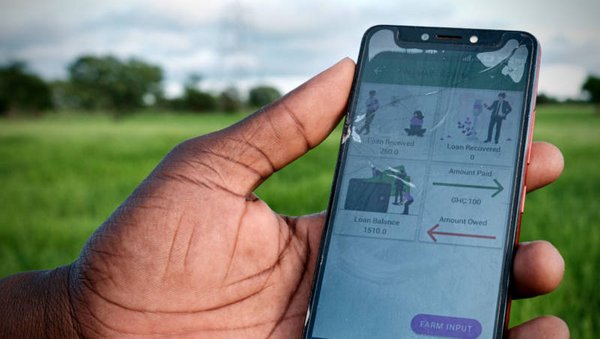 Read this article in French
Read this article in French- Share this article
- Subscribe to our newsletter
Advancing adaptation to climate change with ICT solutions
For years, many assumed the digital gender divide to be a symptom of technical challenges. The theory was that women had limited purchasing power and lesser financial independence compared to men, but that they would catch up once the market saw lower prices for devices and connectivity — as UNESCO for the EQUALS Skills Coalition stated in 2019.
Today, billions of people have access to more affordable devices and broadband networks. However, it’s especially women who lack the requisite skills to take advantage of these technologies to improve their livelihoods. Therefore, specific and tailored training in digital literacy and adoption of solutions and, above all, interest and perception of technologies as benefits and utilities is important.
The Women Farmers Advancement Network (WOFAN), a Nigerian-based NGO and Matching Fund partner of the Competitive African Rice Initiative (CARI) has trained 60 extension workers each in the states of Kano, Kaduna, Jigawa and FCT in Nigeria on advancing agriculture through the deployment of information and communication technologies this year alone. CARI is a project implemented by Deutsche Gesellschaft für Internationale Zusammenarbeit (GIZ) GmbH. Of the 240 extension workers, 210 are female and 30 male. They are expected to re-train 150 peer farmer leaders each in their respective states of origin. The training was conducted in collaboration with the National Agricultural Extension and Research Liaison Services (NAERLS) of Ahmadu Bello University Zaria.
Introducing the RiceAdvise app
The training introduced the participants to the RiceAdvise app, an android-based solution that helps farmers and extension workers get the right and needed information for proper agricultural practice and shows them how to use the moisture meter to get accurate moisture content of crop produce before bagging.
RiceAdvice was developed by AfricaRice to give field-specific recommendations on fertiliser requirements based on farmers’ management practices. It is a sustainability tool that enables proper nutrient management, i.e. balancing crop nutrient requirement with nutrients in the soil. The app additionally helps tackle the issues of climate change and provides farmers with weather forecasts.
According to Hajiya Garba, the Executive Director of WOFAN, the training also includes exposing farmers and extension workers to insurance providers to secure their investments. She notes that WOFAN got insurance companies involved in the training because there was a need for farmers to know what to do in times of climate crises and losses: “Last year, a lot of farmers had to face flooding issues and some drought. So now, when the farmers find themselves in that situation, what will insurance companies do? Therefore, we are partnering up with them, to make sure that farmers meet their requirements,” Hajiya Salamatu Garba explained.
The training is also looking at the use of drones in increasing productivity, advancing farmers and capturing data and the extension workers were trained on the simple deployment of drone technologies.
With regard to the cost of the equipment, Hajiya Garba said WOFAN had started assisting with technology as grants since last year. Grants were revolving, which ensured that the groups using it generated income and the grants became accessible to the community.
“It means we have to look for technology and methods with which we can meet the food demand of Nigeria. It’s only when we invest in such services that we can assist in providing food, which is going to be the next thing, to knock off non-oil economic production in the country,” Garba noted.
A study conducted by CARI found that farmers who use RiceAdvice in comparison to comparable farmers in combination with good agronomic practices had a higher profit margin than non-RiceAdvice farmers. In addition to WOFAN, over 4,100 CARI rice farmers use RiceAdvice each season and achieve above-average results.
(giz/wi)





Add a comment
Be the First to Comment